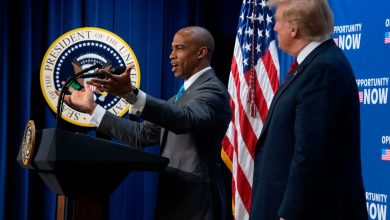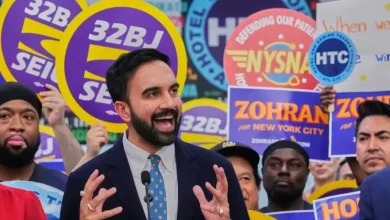U.S. Government and Top SDNY Prosecutor Jay Clayton Ask Federal Judge to Keep Two Jeffrey Epstein Wire Recipients a Secret

The Department of Justice has asked a federal judge to keep secret the identities of two Jeffrey Epstein associates who received $350,000 in wire transfers from the deceased sex trafficker in 2018, just days after renewed media scrutiny of his plea deal arrangement.
The Payments and Their Timing
Court documents reveal that Epstein wired $100,000 to one associate and $250,000 to another in late November and early December 2018, coinciding with the Miami Herald’s publication of investigative stories criticizing his 2008 plea agreement. The payments began just two days after the Herald series launched, raising prosecutors’ suspicions about potential witness tampering.
Both recipients were identified as “potential co-conspirators” in Epstein’s case and had received protection from prosecution as part of his original plea deal. According to federal prosecutors, one of the associates “was also named and featured prominently in the Herald series,” while the other was described as an employee who “facilitated the defendant’s trafficking of minors by, among other things, contacting victims and scheduling their sexual encounters.”
Media Challenge and Legal Response
NBC News filed a motion last month requesting that U.S. District Judge Richard Berman unseal the redacted names, arguing that Epstein’s death, the conclusion of criminal proceedings, and the Justice Department’s July statement that no additional charges would be filed against third parties justified disclosure.
However, U.S. Attorney Jay Clayton of the Southern District of New York responded on Friday, defending the associates’ privacy rights. Clayton, who previously served as SEC chairman during Trump’s first term, wrote that “Individual-1 and Individual-2 are uncharged third parties who have not waived their privacy interests” and have “expressly objected to the unsealing of their names.”
Prosecutorial Concerns About Witness Tampering
When Epstein was arrested in New York in 2019, federal prosecutors cited these payments as evidence of potential witness tampering in their argument against granting him bail. They noted that the timing of the transfers, beginning immediately after negative media coverage, “suggests the defendant was attempting to further influence co-conspirators who might provide information against him.”
The prosecutors described this as part of Epstein’s “efforts to influence witnesses” in light of “recently re-emerging allegations” following the Herald’s investigative series.
Privacy vs. Transparency Debate
The case highlights the ongoing tension between protecting individual privacy rights and public interest in transparency regarding Epstein’s network of associates. The DOJ maintains that both individuals have legitimate privacy concerns and have actively opposed disclosure of their identities.
According to court filings, both associates sent letters to the U.S. attorney’s office expressing their objections to having their names revealed, though these letters remain under seal.
Investigative Reporter Identifies Likely Recipients
Julie K. Brown, the Miami Herald investigative journalist whose 2018 series sparked renewed scrutiny of Epstein, provided additional context on social media about the payments. Brown wrote on X/Twitter: “There were two payments made in 2018 (after my series ran) were made to two of his female assistants, one was Sarah Kellen — and another to an assistant/co-conspirator, possibly Nadia Marcinkova, who also worked for him. The banks flagged the payments and thats why the feds found out about them.”
Brown’s reporting was instrumental in bringing Epstein’s case back into public view and ultimately led to his 2019 arrest. Her identification of the likely recipients adds significant context to the DOJ’s efforts to maintain their anonymity.
Broader Context of Epstein File Releases
The dispute comes amid continued pressure on the Trump administration to release additional Epstein-related documents. During his campaign, President Trump pledged to disclose the so-called “Epstein files,” but Attorney General Pam Bondi has faced mounting calls from Congress and Trump supporters for more comprehensive document releases.
Recent controversies over alleged DOJ cover-ups and congressional efforts to force disclosure through discharge petitions have intensified scrutiny of how the administration handles Epstein-related materials.
Legal Timeline and Next Steps
Judge Berman has given NBC News until September 12 to respond to the Justice Department’s request to maintain secrecy. The timing of any final ruling remains unclear, but the case will test the balance between protecting uncharged individuals’ privacy and satisfying public interest in understanding the full scope of Epstein’s operations.
The associates’ identities have remained protected since Epstein’s original 2008 plea deal, which included non-prosecution agreements for potential co-conspirators. Their continued anonymity reflects the lasting legal protections negotiated more than 15 years ago, even as public pressure for transparency has intensified following Epstein’s 2019 arrest and subsequent death.
Recent Trump Administration Departures
The Epstein secrecy debate unfolds amid a pattern of high-level departures from the Trump administration. Treasury Department’s second-in-command Michael Faulkender announced his departure in August 2025, less than five months after Senate confirmation, while IRS Commissioner Billy Long was replaced on August 8, 2025, after just two months on the job—marking the sixth IRS leadership change this year alone.
These rapid personnel changes have contributed to what critics describe as administrative instability, potentially complicating efforts to maintain consistent policies on document disclosure and transparency issues across government agencies.
Implications for Ongoing Investigations
While the Justice Department stated in July that no additional prosecutions of Epstein associates are planned, the secrecy surrounding these payments and the individuals’ identities continues to fuel speculation about the breadth of Epstein’s network and potential ongoing investigations by other agencies or jurisdictions.
The case also demonstrates how legal protections established in controversial plea agreements can persist long after the primary defendant’s death, complicating efforts to achieve full public accounting of criminal enterprises involving multiple participants.




